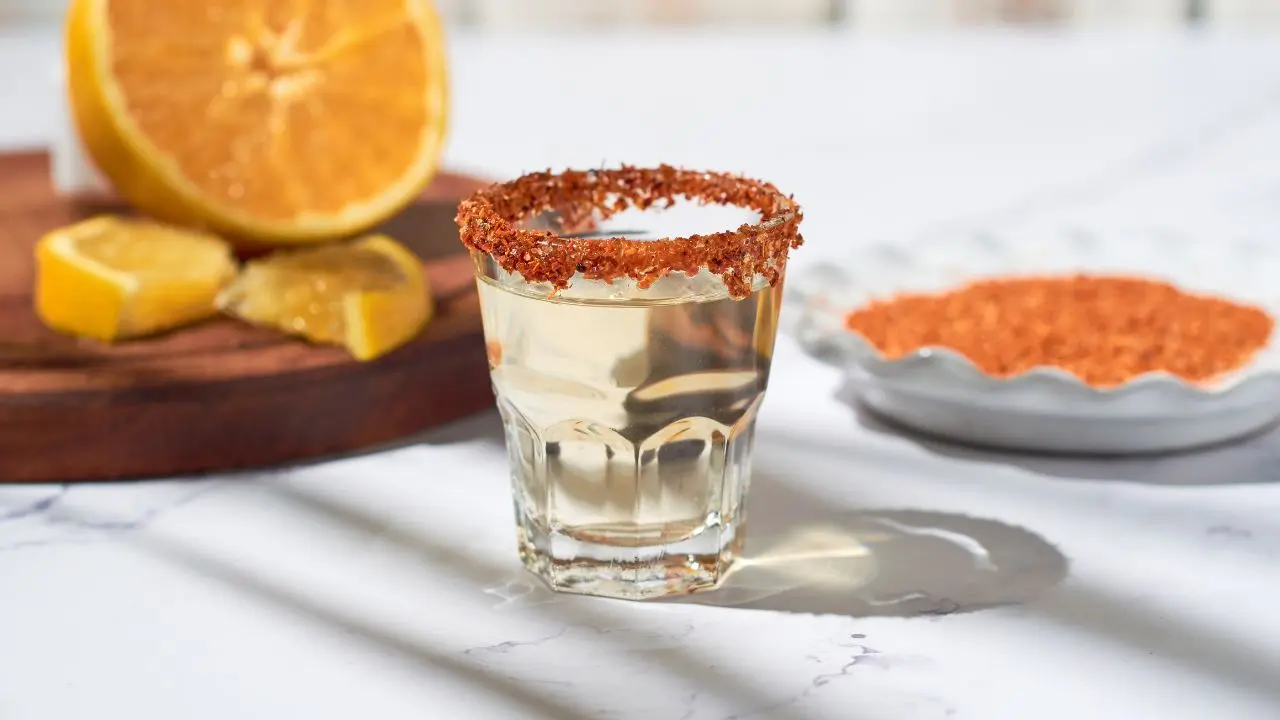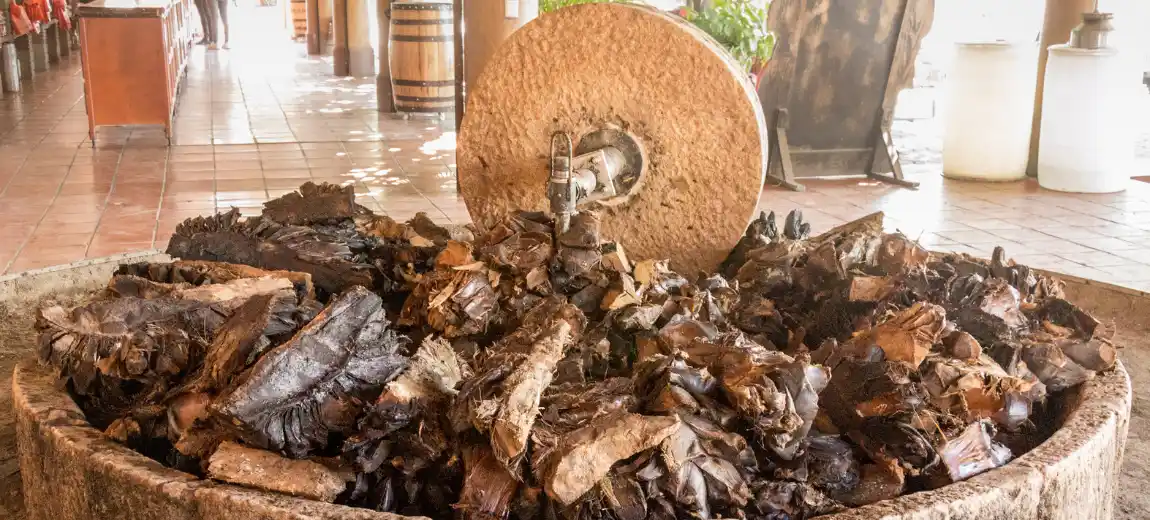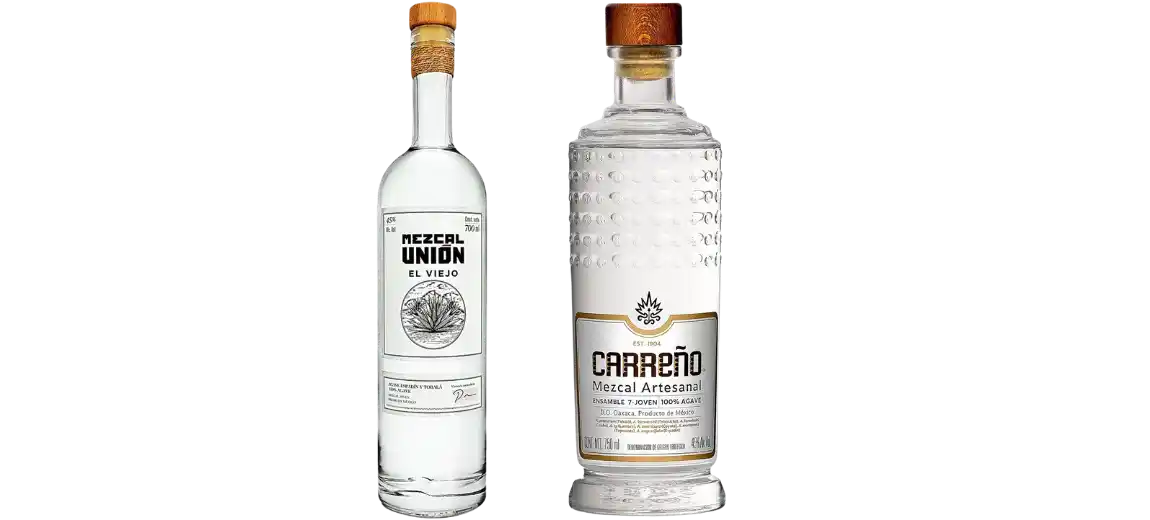Inicio > Blog english > Types of mezcal

Mezcal is a very complex spirit to understand its history, as well as its definition, classification, and variation. We will explain in a simple way the types of mezcal that exist, the type of agave for mezcal that is used, and its transcendence in detail of this drink that we love for every meeting or Mexican parties that we carry in our culture.
While tequila (mezcal’s close brother) is made only and exclusively from blue agave. Mezcal is made from more than 20 types of agave. In addition, it also has unique assemblages and elaborations such as mezcal with breast, or mezcal with worm, scorpion, etc.
The subject of the differences between mezcal and tequila is very deep, that is why we invite you to its article that details much more in detail the differences between these two spirits: Mezcal vs tequila.
And in this article we will focus on the types of mezcal according to the type of agave, its type of classification-categorization, and its type of elaboration.

To categorize mezcal in 2 categories is based on the following specifications: cooking, milling, fermentation and distillation methods.
Here are the differences between Ancestral and Artisanal mezcal:
When we refer to the type of classification of a mezcal, we mean the type of maturation that a mezcal has basically.
So the classes of a mezcal are based on how long it has been matured or rested. These are the 3 types of mezcals that currently exist:
This type of mezcal is so called because, once distillation is complete, it is bottled immediately for marketing, without undergoing resting or aging processes.
This type of mezcal is so called because it is matured for 3 to 6 months before it is marketed.
This type of mezcal is so called because it is matured for 6 to 12 months before it is marketed.

These are the types of agave for mezcal that are used for the production of more than 20 types of mezcal according to the agave harvested for the elaboration.
The best thing about mezcal is its rich variation of flavors and elaboration where the type of agave used is included, because there is a great extension of agaves in the regions where agave is cultivated, mainly in Oaxaca. We will only mention the most popular mezcals by agave type:

This type of mezcals are classified due to special processes, or extra adherences in the mezcal. We mention the 2 that exist:
Distilled with: The most popular example of this is mezcal pechuga, this type of mezcal is produced based on a special distillate, in its final distillation, pechuga and fruits are added to the mezcal espadín for the production of mezcal de pechuga.
Avocado: This type of mezcal is bottled with additional abocados such as worms, scorpions, or even small snakes. Some of these are added to change the flavor and aroma.

These types of mezcals are not classified as an official standard or registered as a specific type of mezcal, but when we talk about an Ensamble we are talking about a mixture to produce a mezcal based on 2, 3 or more agaves, clear examples such as: Espadín-Tobalá, Espadin-Cuishe, Ensamble 7 Carreño, etc.

Mezcal creams or also known as curados, are types of mezcals produced especially for the marketing of softer and sweeter mezcals, as mezcal is commonly drunk neat and straight.
Although the existence of mezcal creams also gives entry to a sweeter side of mezcal, also as a primary option for those unfamiliar with the world of mezcal.
It should be pointed out that cured mezcal or creams differ from mezcal cocktails, because cocktails come from cocktail-making techniques, while mezcal creams lead to a process of packaging and commercialization.
Just classifying, dividing, taxonomizing the types of mezcals is a whole story. That is why we love the variety and versatility that mezcal has, traditional and historical processes that are used in the techniques of the master mezcaleros to always produce a 100% mezcal based on the techniques taught generation after generation.
And in turn, finding the best mezcal, or the best type of mezcal, is very complex. Due to its wide range of variety and classifications, you will have to go through quite a journey to find your own favorite mezcal.